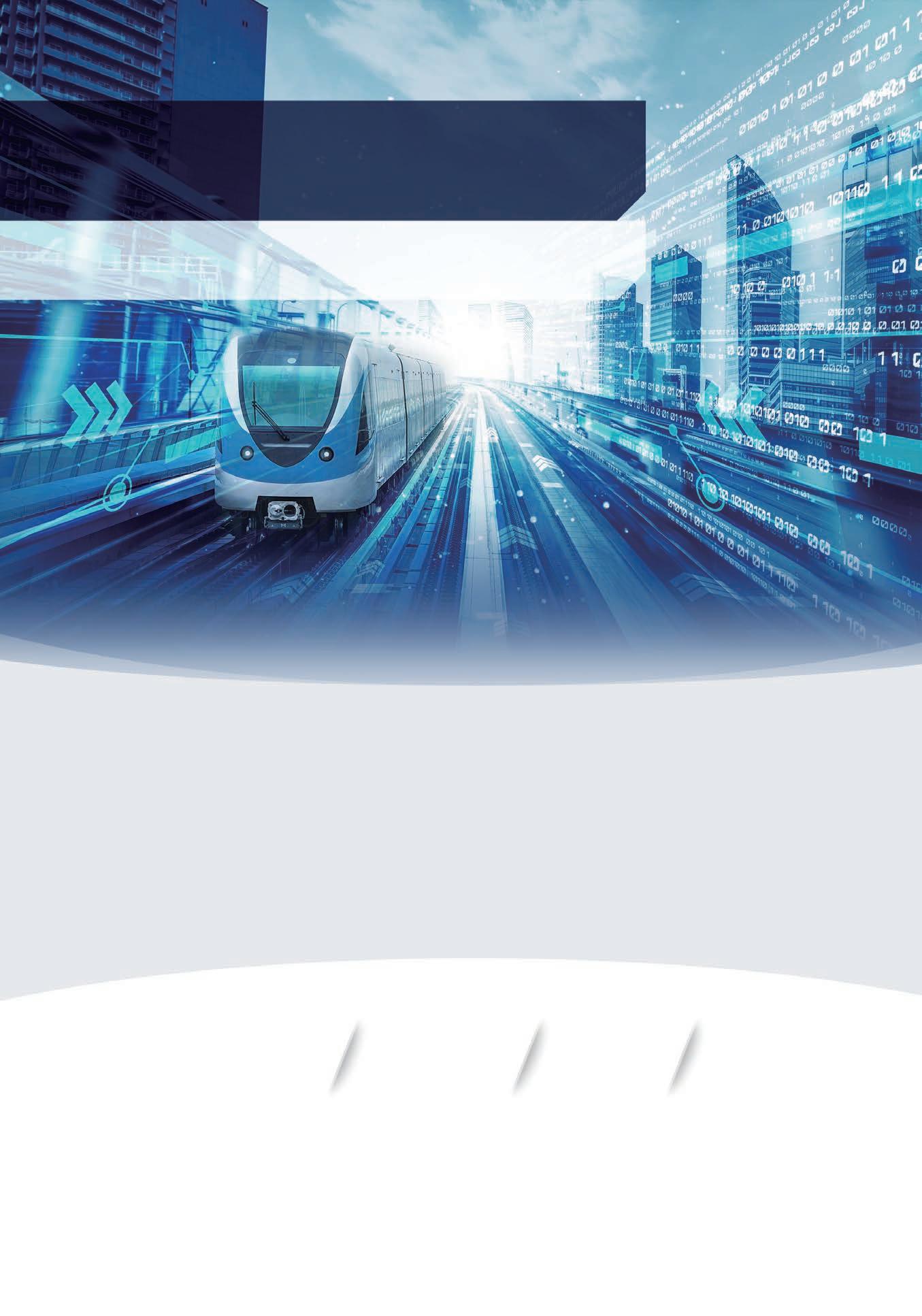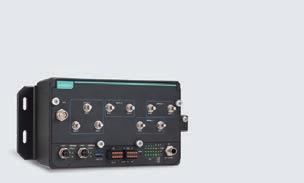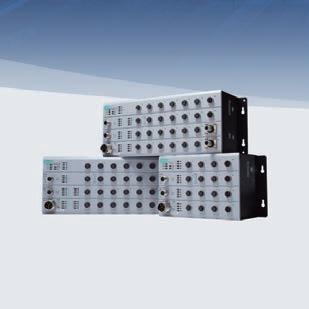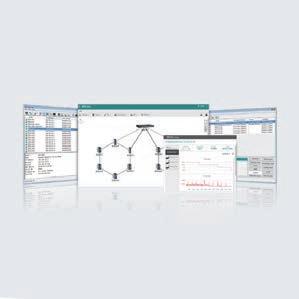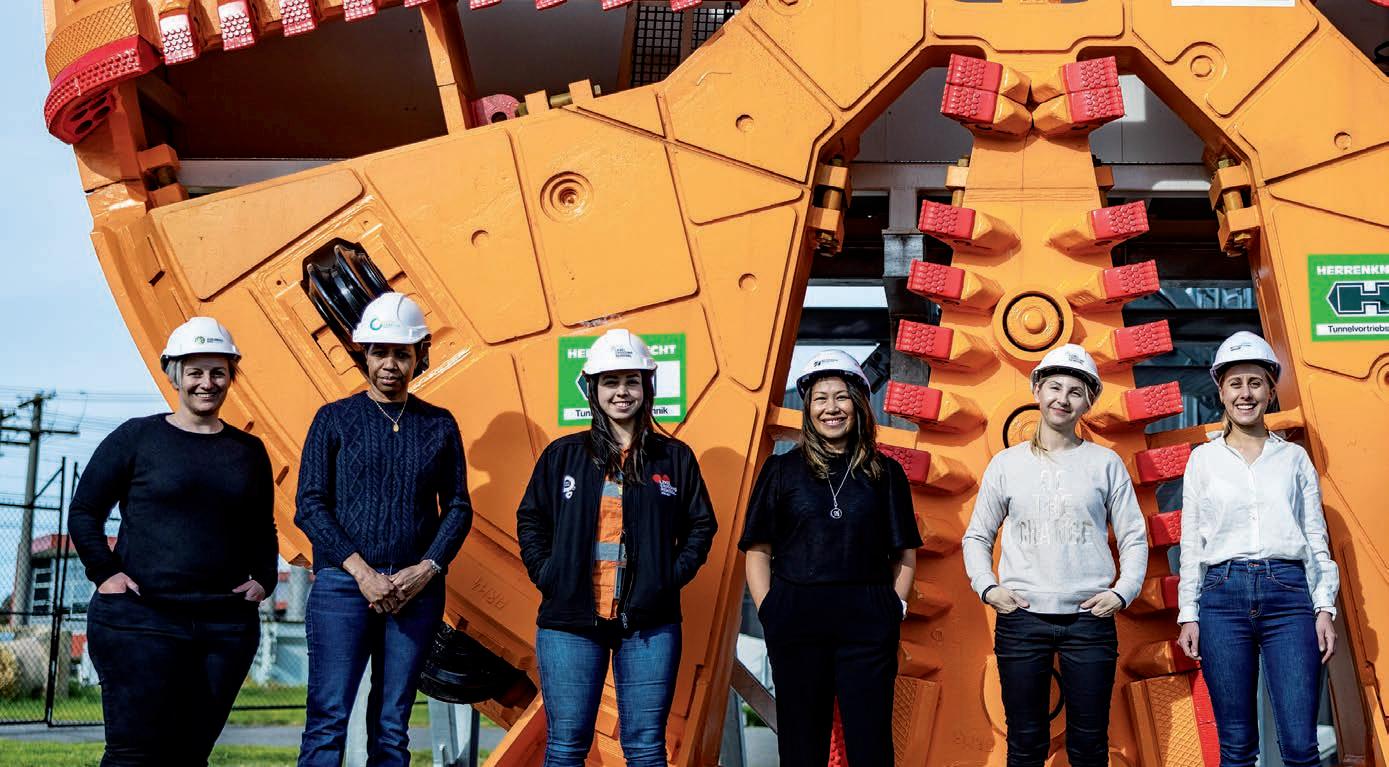
14 minute read
Feature: Diversity and inclusion
by Prime Group
Diversity and Inclusion
The importance of diversity and inclusion in the workplace is key to enhancing the future of Australia’s rail sector.
More diversity with less adversity
Environmental, Social and Governance matters have gained a greater importance in recent years, and it’s certainly more than just a clichéd phrase.
The railway sector, like many other industries, has rightly prioritised sustainability in its operations and practices.
But it’s not just about environmental stewardship: it involves social welfare to deliver long-term value to stakeholders, encompassed in the ESG (Environmental, Social, and Governance) philosophy, which represents a framework to identify, evaluate and manage non-financial issues relevant to both an organisation and its stakeholders.
The environmental aspect looks at impacts on the planet such as energy and water use, waste discharges and resources needed, as well as development of sustainable products and services.
Governance considers the policies, organisational structure, and systems of practice that guide how an organisation operates in a transparent and inclusive manner.
And the social element – which has been growing in prominence – drives awareness of and improvement of workforce inclusivity and wellbeing, human rights and social equity, as well as relationships with local communities and stakeholders throughout the value chain.
Overall, strong ESG performance creates shared value for workers, communities, investors and broader society: how the industry operates is as important as what it does.
The rail industry must be both safe and environmentally and socially responsible in order to both make an economic contribution and support societal ambitions, such as meeting climate change targets.
Robust ESG performance is built off investment in workforce skills and capability, research, new technologies and innovative practice to improve safety and workforce diversity, drive down emissions and water use, support biodiversity and reduce waste.
A 2020 report by Victoria University into changing workforces stated that with labour shortages a long-term issue currently facing public transport, there is a critical need to attract and retain a diverse and innovative workforce to ensure future sustainability of the industry.
The paper said that to understand what is needed by the rolling stock sector, it is important to ascertain the organisational and cultural strengths within it, and the barriers to creating “an inclusive learning workforce that can retain and attract the diverse and innovative workforce they wish to become”.
It said that due to the evolution of technology and the need for innovation, people and the work they do in all areas of public transport are now critical to the future sustainability of the sector as a whole.
Image: Major Transport Infrastructure Authority, Victoria
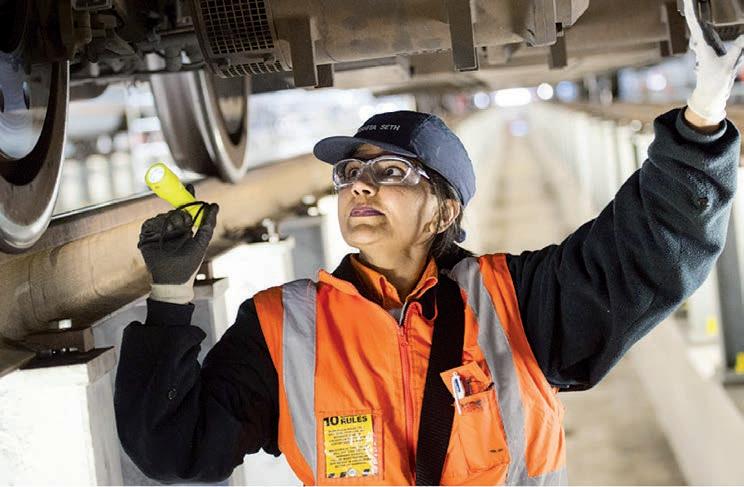
BREAKING DOWN THE BIAS
The rail sector has had a long history of being a male-dominated industry, which has meant that women were not knocking on the door of opportunity within rail as much as men.
According to Aurizon Talent Acquisition Manager Matthew Clifford-Jones, the lack of women did not mean that women weren’t interested in the profession.
In a report to the 2019 Heavy Haul Rail conference, he said females were outperforming males in technical and STEM subjects at school and beyond.
“So the skill, talent and interest appears to be there,” he said.
“I’d say it’s more of a perceived “cultural” mismatch. And that is something the rail industry needs to take active steps to change.” An additional barrier is finding a diverse range of people with the skills, experience and qualifications for roles, throughout the organisation. However, Clifford-Jones believes that taking on people with indirect but transferable skills and experience can be just as good, if not better.
“Bringing someone in with transferrable skills and experience from another industry can be a great move. And actually, it often pays to introduce new ways of thinking and cultural approaches to rail that have worked well in other sectors,” he said.
“They come in, shake things up in a good way and bring fresh ideas and experience – and most importantly, diversity of thought. That’s invaluable to us.”
Clifford-Jones said the importance of diversity and inclusion in the workplace extended far beyond fairness and equal rights, and is key to enhancing the future of Australia’s rail sector.
“Creating a culture where everybody feels safe and included to come to work should be a priority for every organisation,” he said.
“Organisations in our industry should reflect on how they make inclusion visible for women, indigenous Australians, people with disability, people from different cultural and religious backgrounds and the LGBTIQ+ community. If your workforce does not represent these communities than you need to make this a priority.”
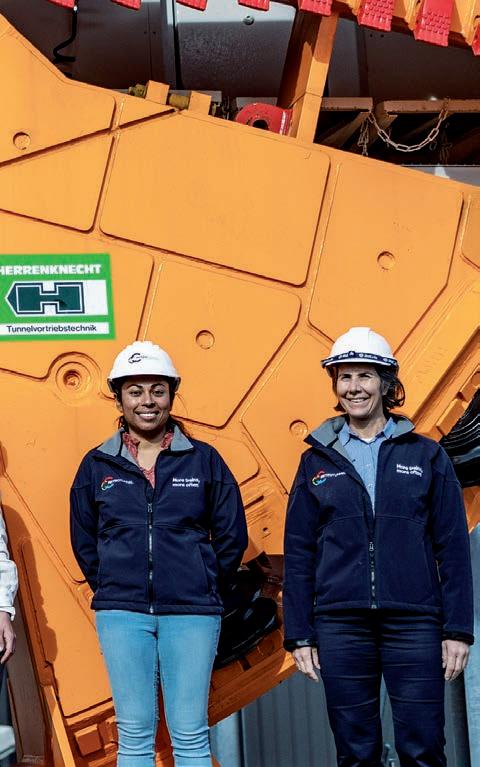
Diversity ensures that we reflect the communities in which we operate.
EXAMPLES IN ACTION
• Pacific National
Pacific National has released its FY 2021 ESG Report, incorporating its ESG strategy which includes expanded goals for Australia’s largest private rail freight operator.
The strategy is focussed on achieving measures in the key areas of health and safety, inclusion and diversity, and environment. Chief executive officer Paul Scurrah said Pacific National had shifted from reporting simply on its ESG performance metrics, to outlining a comprehensive pathway focused on achieving specific goals in key areas in its annual ESG report. Complementing it is its company-wide values and priorities program launched by Scurrah in early 2021. “The ‘Pacific National Approach’ (PNA) includes our strategic priorities and shared values which bind us together as a business and guide how we operate,” he said.
“Central to it is encouraging a diverse workforce, which is why our ESG framework supports a number of concrete initiatives, such as recognising our LGBTQI+ colleagues, our successful women’s mentoring program, and committing to targets to increase participation for Aboriginal and Torres Strait Islander Peoples. “Pacific National’s history, values and operational track record are a strong foundation to continue to grow and mature our ESG strategy to achieve our vision to be recognised as Australia’s most trusted and respected logistics partner.”
• ARTC
The Australian Rail Track Corporation (ARTC) is a strong supporter of gender and diversity balance in the workplace, and Joni Kua is a shining example of how the opportunity to work at the organisation has been grasped to the fullest. The Network Performance Manager began her career as part of work experience in her final year of mechanical and manufacturing engineering studies at the University of South Australia.
She put her skills and smarts to good use straight away, and it’s now 16 years later. In that time, she has earned a Master’s in Engineering – Railway Infrastructure and
Diversity and Inclusion
Joni Kua relishes her role at ARTC.
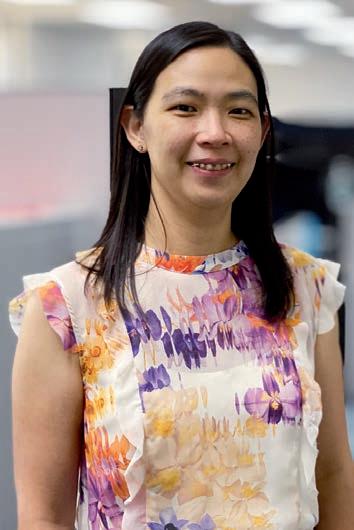
has become an integral member of ARTC’s Operational Performance and Asset Condition Sub-Committee. In her role as a Network Performance Manager, Kua and her team use data sourced from operations, track recordings and rail inspection cars to provide analysis, advice and reporting assistance to the Interstate and Hunter Valley asset management and operations teams.
With two young children, Joni tries to squeeze in “me time” , believing that balance is the best way to make the most out of life.
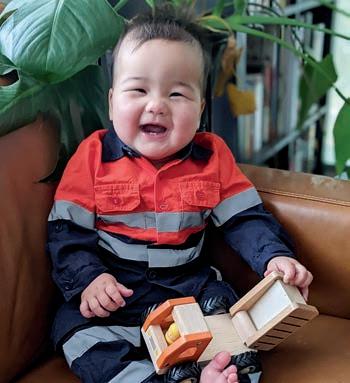
• Victoria’s Big Build
Victoria’s Big Build, the massive transport infrastructure project across the state, has put in place many initiatives to help attract and grow the next generation of skilled, confident women in transport: • The Building Equality Policy is designed to address gender stereotypes in the building industry. Applying to new government projects valued at $20 million or more, it mandates female representation in at least: - 3 per cent of each trade role - 7 per cent of each non-trade position - 35 per cent of management, supervisor and specialist labour roles - 4 per cent of labour hours for apprentices and trainees. • The Women in Apprenticeships fund supports 10 projects to create a pipeline of skilled workers. • The Victorian Government’s Women in
Transport Program supports women working in construction.
Stefania Calati, a building manager for the Metro Tunnel Project’s Arden Station, is a civil engineer with 15 years of experience in the construction engineering field. She completed a double degree in Civil Engineering and Arts at the University of Melbourne, where she combined her love of mathematics and languages.
“As a female manager I bring a different type of energy to large infrastructure projects, the sites I work at, and the teams I work with. I think differently, share differently, and listen differently,” she said.
“Little by little, I’m aiming to change how the roles of women in construction are perceived, so that women taking on key roles across major transport infrastructure projects like the Metro Tunnel Project becomes more the norm and less the exception.”
Rail and Infrastructure Graduate Adele Aldaoud is with the Suburban Rail Loop Authority, and moved to Australia from Syria.
Coupled with a love and talent for math, she knew engineering was for her. With the unwavering support of her parents, Adele completed a Bachelor of Civil Engineering at Al-Ba’ath University in Syria, then a Masters in Civil and Structural Engineering at the University of Tasmania.
“I like that engineering is all about innovation creativity, that you can make an impact on the community – and even the world – for the future,” she said.
Meanwhile, Level Crossing Removal Project engineers Sylvia Stephens and Aleks Knez are spreading the message that their traditionally male-dominated profession can provide a supportive environment for managing work and motherhood.
They have both returned from parental leave to project sites at Glen Huntly and Hurstbridge where works have ramped up to transform how commuters travel around Melbourne’s southeast and north-east.
Stephens is currently working part-time after giving birth to her first child, Zoe. She started working on the Level Crossing Removal Project as part of a graduate program in 2016 and has been part of the Caulfield to Dandenong, Seaford, Kananook and now Glen Huntly projects.
Returning to work earlier this year has also been a smooth process, and she has been supported by her manager and team to ensure she can continue in her role as Project Engineer, transforming the way people travel across Melbourne. 32-year-old Knez’ second child recently turned one. She returned to full-time work after Christmas with the support of her parents, in-laws and childcare. The Senior Project Engineer has a demanding role as part of works duplicating 3.5km of the Hurstbridge line and building new stations at Greensborough and Montmorency.
“Having diversity in the industry brings different perspectives and ways to solve problems. It’s the conversations and roles we play a part in everyday on big public projects that can deliver better outcomes for the community,” she said.
ARA GENDER DIVERSITY REPORT
In its latest Gender Diversity Report, the Australasian Railway Association (ARA) found that more women were advancing their careers in rail but action is needed to support stronger female participation in the industry. ARA Chief Executive Officer Caroline Wilkie said women now made up 24 per cent of the rail workforce, with industry strongly focusing on gender diversity.
The survey found 89 per cent of participating organisations have formal policies or strategies to support gender diversity and 80 per cent have recruitment policies or strategies to improve gender equity in their organisations.
The freight and intermodal sector saw the biggest rise in female participation, with a 12 per cent increase in the last two years. There was also a 16 per cent increase in female representation within rail industry governing bodies, with 27 per cent of governing body chairs being women.
The effect of the COVID pandemic was also evident, with 79 per cent of respondents having formal policies or strategies for flexible working arrangements, a five per cent increase in the last two years and above the Workplace Gender Equality Agency’s (WGEA) national average.
Wilkie said attracting females into rail apprenticeships or rail training and attracting skilled or qualified female candidates were key challenges reported by participating organisations.
Sylvia Stephens’ baby daughter Zoe pictured in her very own construction uniform.
Awards honour outstanding women achievers
There is another exceptional field in the Women in Industry Awards, which recognise outstanding women from the industrials sector.
Rail Express has partnered with Prime Creative Media publications Australian Mining, PACE, Manufacturers’ Monthly, MHD Supply Chain Solutions, Prime Mover, Trailer, Waste Management Review, Roads & Infrastructure Australia and Australian Bulk Handling Review to acknowledge the exceptional women who have achieved success through their invaluable leadership, innovation and commitment to their respective fields.
The Women in Industry Awards honour outstanding women from the industrials sector – those who work in mining, road transport, manufacturing, engineering, logistics, bulk handling, waste management, rail and infrastructure.
This is an opportunity to recognise the women who are driving change in the industry and, in doing so, breaking down barriers and creating new possibilities for the next generation. The 2021 finalists from the rail sector include:
• Social Leader of the Year Anne Williams – Plant Operations Manager Rail, John Holland
Anne Williams is changing the face of rail in Western Australia while also implementing cultural changes to develop and maintain a more diverse and inclusive workforce.
She has been in the John Holland company for more than 22 years and is excelling in her current role as the Plant Operations Manager.
Her self-belief and resilience have been a
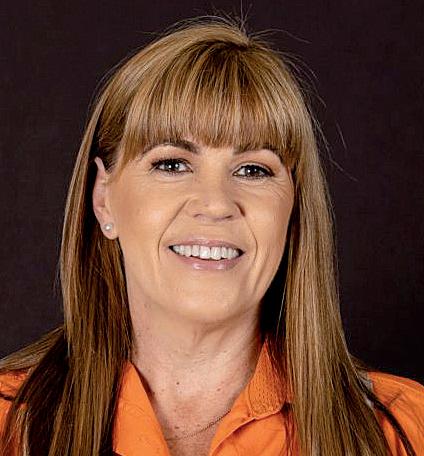
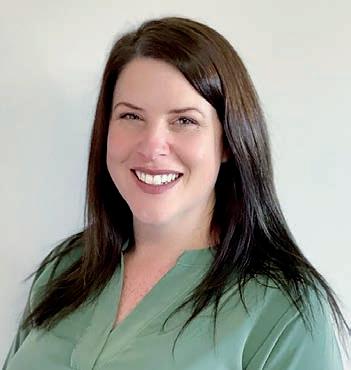
Anne Williams, Plant Operations Manager Rail, John Holland driving motivation for her ongoing commitment to creating pathways and making it easier for others to work within the industry.
Williams’ active involvement in the industry and the wider community is how she became aware of the Clontarf Foundation and its mission. Further, her passion for providing apprenticeship programs and opportunities for young people and new entrants are resulting in powerful and meaningful change across the industry.
• Excellence in Transport Catherine Baxter – Chief Operating Officer, Metro Trains
Catherine Baxter is the Chief Operating Officer at Metro Trains Melbourne and is responsible for safely operating metropolitan passengers’ services, on-time and cost effective.
This past 12-plus months, under her leadership, MTM has rolled out some rail transport industry-driving firsts and much innovation to drive continuous improvement.
She inspires her leadership team to perform at the highest possible level, pushing her direct reports to not only achieve the franchise targets set by the State, but ensures that it demonstrates the Metro company values.
Baxter has been an important role model for other women in and outside of the industry, giving motivation to other women who aspire to achieve great things in transport.
Kirstyn Glass – Rail Operations Consultant, Trapeze Group Asia Pacific
Kirstyn Glass has worked with Trapeze Group since 2019 to present, providing subject matter advice on rail technology to both transport authorities and operators within Australia and overseas.
She has used her operational knowledge and experience to enable Trapeze to gain a greater understanding of the rail industry, and the challenges faced by our clients.
With her many years of experience, she has been played a major role in designing new features and functionality within their system.
Since joining Trapeze Group, Glass has been an advocate for women in rail. Having successfully worked in the rail industry for a lengthy time, she understands how rewarding it can be, the challenges that women face, and how increasing diversity by including more women in the industry will bring benefits across the board.
• Industry Advocacy Award Jo Sainsbury – Director, Kickass Women
Jo Sainsbury drives women to succeed and has spent the past eight years learning, developing, and growing in her role and to strive for change.
She inspires other women to consider a career or career change and to pursue roles within these diverse industries, and has been a strong drive in introducing a campaign that will launch in August called ‘The Future is Female.’
Sainsbury is the loud and proud creator and founder of Kickass Women, which is building a distinctive role in the rail, mining, resource, STEM and construction industries.
She is using her voice via public speaking and social media to promote positive career success and career pathway outcomes for women and younger women.
The winners will be announced at a presentation event on Thursday, 7 April, at the Arts Centre, Melbourne.
Jo Sainsbury, Director, Kickass Women
Tickets are available from: https://primecreative.eventsair.com/women-inindustry-awards/tickets/Site/Landing
